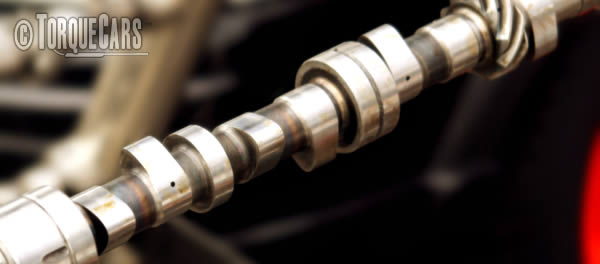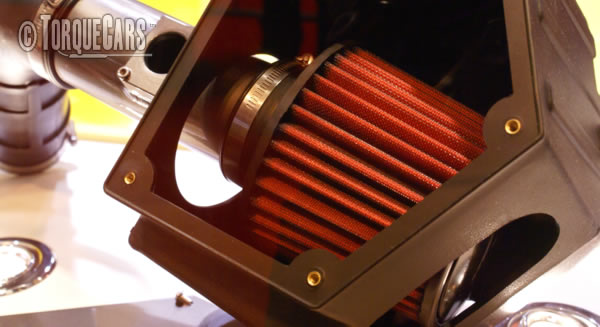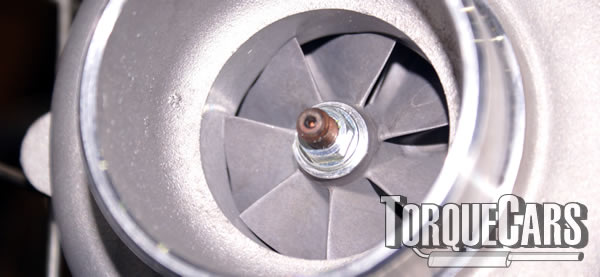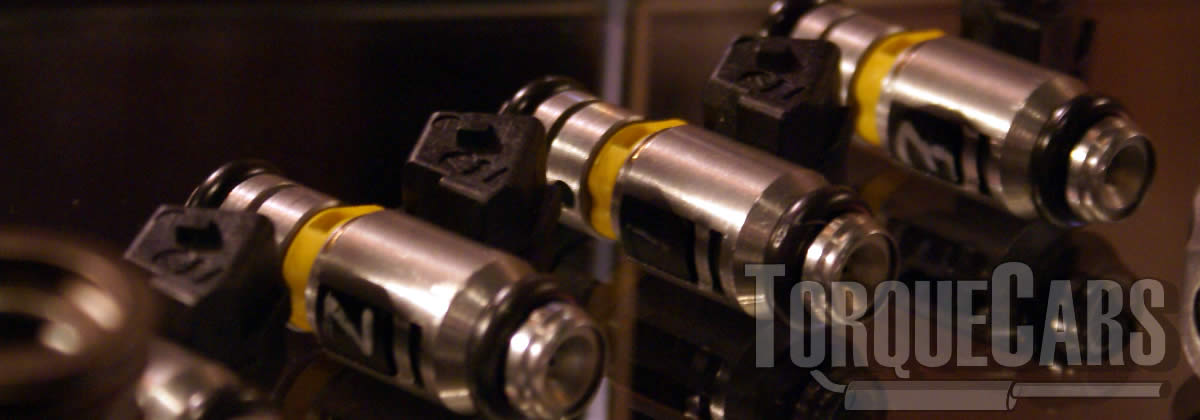Tuning the GM ECOtec Petrol engine
"All you need to know about performance parts and tuning the GM ECOtec engine!"
Carref prides itself on providing the latest tips and guides to your modification project.
We examine ECOtec tuning and provide tips on the optimum modifications for your car.
GM ECOtec are popular tuning projects and with carefully picked sports modifications like a remap, turbo upgrades and camshafts you will dramatically maximize your driving pleasure.
We rely on our visitors to pass on tips and tell us about their projects and what worked on their car, and this article is the culmination of the feedback we have received. First let us look at the history and specs of this engine and then consider which tuning modifications work best on it.
History of the Engine
- 1996–present GM Family 0 straight-3
- 2013–present Small Gasoline engine straight-3
- 1996–present Family 0 4 cylinder Opel
- 2000–present L850 engine 4 cylinder Opel, SAAB, and GM Powertrain
- 2012–present Medium Gasoline DOHC straight-4 (designed by Opel)
- 2013–present Small Gasoline DOHC straight-4 (designed by Opel)
What are the most effective ECOtec upgrades
The best tuning parts on an engine are in our opinion the ones that give the best power gain for you spend.
We won't be swayed by popular ECOtec tuning parts, they need to be cost effective.
The camshaft profile plays a big part in the engines power output so camshaft upgrades make quite a large difference. The intake & exhaust durations will alter depending on the chosen camshaft profile, so large power band gains are on offer for camshaft upgrades.

Fast road camshafts tend to push up the bhp over the rev range, you could drop a little low end torque but top end will be better.
Competition camshafts, push up the top end band but as a result the car will not idle smoothly and low end power nearly always suffers.
For a road car should ideally to match your bhp range to your driving style.
I would be surprised if you find a Competition cam is a pleasure to live with when in heavy traffic.
Different ECOtec engines respond better to more aggressive camshaft durations than others.
The ecu map and injectors and fuel pump also have an effect on the torque gains you'll make.
Extending exhaust or intake durations can alter the torque band and on most engines the exhaust and intake durations do not need to match, although most cams and tuners use matched pairs there are some advantages to extending the intake or exhaust durations.
Please watch our introduction Video tutorial to car tuning. Be sure to subscribe and support our new channel.
How to tune your car
- Improve the handling
Focus on Suspension improvements, such as coilovers and make sure the bushings are in good order and that the alignment is correct. Then focus on improving the brakes, with a big disk brake conversion kit and fast road brake pads.
- Remove restrictions
Focus on the intake and exhaust with filters being the common point of restriction in a tuned car. Intercoolers may also become restrictive on turbo engines so this may also need to be uprated.
- Burn more fuel & air
Increase the fuelling so it matches the air coming into the engine. The ratio is important so you need to improve the fuel pump and injectors, so the head mods, big valve conversions, fast road camshafts and forced induction upgrades extra supply of air is adequately met.
- Test and replace any weak parts
Weak areas are commonly the clutch, the turbocharger and pistons and crankshaft in a highly tuned engine. Makes sure these components will cope with your power aspirations.
- The Tune or Remap
A cars ECU controls the fuel, timing, spark and even the turbo in some cases, so to fully extract your gains you should remap the car last and this will fully release the power. Some cars are easy to map, and others require piggyback ECU's or aftermarket ECU's but this is the most vital step of your tuning project.
Modifying to Stage 1:
Fast road camshaft, Sports exhaust manifold, Intake headers, Remaps/piggy back ECU, Drilled & smoothed airbox, Panel air filters.
Modifying to Stage 2:
high flow fuel injectors, induction kit, Sports catalyst & performance exhaust, fuel pump upgrades, Ported and polished head, Fast road cam.
Modifying to Stage 3:
Internal engine upgrades (head flowing porting/bigger valves), Engine balancing & blueprinting, Competition cam, Adding or Upgrading forced induction (turbo/supercharger), Twin charging conversions, Crank and Piston upgrades to alter compression.
A remap should help to to establish the full potential of all the mods you've done to your ECOtec.
It will usually give around 30% more power on turbocharged vehicles and 15% on NASP engines, but you mileage will vary depending on the mods you've done and the condition of your engine.
It is the aim to any car tuning task to feed air and fuel into your ECOtec
Headers carry the air from the air filter and allow it to be drawn into the engine cylinders.
The shape and flow rate of the Headers can make a substantial difference to to fuel mixing and power on the ECOtec.
I usually find intake are improved through a performance upgrade, although some OEM provide reasonably well designed intake.
Increasing the ECOtec valve size, getting port work and head flowing will also lift power, and importantly will give you an improved power increase on other upgrades.

Which turbo upgrades are best?

NASP engines need quite a lot of work when you add a turbo, so we have a separate guide to help you take into account the pros and cons of going this route on your ECOtec
The more air to get into an engine, the more fuel it can burn and uprating the induction with a turbocharger upgrade makes massive power gains.
When a car has a turbocharger tuning mods are relatively easy and we find turbo engines are built with harder and stronger components.
There are reliable limits for every engine, with some being over specified and some just sufficiently able to handle stock power
It is important to find these limits and install higher quality components to cope with the power.
There are many drivers spending a loads of money on turbocharger upgrades on the ECOtec only to watch the motor go up in smoke when it's used in anger.
Big capacity turbo chargers often experience a bottom end lag, and little turbo chargers spool up quickly but do not have the top end power band gains.
the choice of turbo units is always improving and we commonly find variable vane turbo units, where the vane angle is altered according to speed to lower lag and increase top end bhp.
Twin scroll turbo units divert the exhaust gases into two channels and flow these at differently designed vanes in the turbo. They also boost the scavenging effect of the engine.
It is common that there is a limit in the air flow sensor AFM/MAF on these engines when considerably more air is being fed into the engine.
We note 4 bar air sensors coping with quite large power gains, whereas the OEM air sensor sapped torque at a much lower level.
Adding a supercharger or additional turbo will make large torque gains, although more difficult to install. We have a twincharger torque adding guide if you want to read more.
Fuelling
When you boost the torque you will need to pay attention to to the fuel system.
More torque needs more fuel.  We strongly recommend you to be generous with your injector capacity.
We strongly recommend you to be generous with your injector capacity.
The accepted safe increase is to add 20% to the flow rate when fitting an injector, which takes into account injector deterioration and affords a little spare capacity should the engine need more fuel.
We think this one is common sense, but you'll need to match your fuel injector to the type of fuel your car uses as well.
All the following flywheel power targets will assume an injector duty cycle of 80% and a base of 58 psi of fuel pressure at idle.
Choosing the right performance exhaust
One of the most common mistakes and problems we see in tuning projects is usually down to the exhaust, or rather a poorly chosen exhaust for your engine.
You only need to to improve your exhaust if the current exhaust is creating a restriction in flow.
On most factory exhausts you'll find the flow rate is still good even on modest power gains, but when you start pushing up the power levels you will need to get a better flowing exhaust.
Sports exhausts balance the flow of gases through the engine.
But if the exhaust is too big, ie: it's over 2.5 inches bore, you will lose a great deal of the flow rate and end up losing power and torque.
Typically exhaust restrictions can be located the emissions filters installed, so adding a better flowing race alternative will help avoid this restriction.
Weak spots Issues & problem areas on the
The engines are generally reliable and solid as long as they are regularly serviced and maintained.
Regular oil changes are vital on the , especially when tuned and will help extend the life and reliability of the engine.
For more information on Tuning your engine please join us in our friendly forum where you can discuss tuning options in more detail with our owners. It would also be worth reading our unbiased tuning articles to get a full grasp of the benefits and drawbacks of each modification.
Please help us improve these tips by sending us your feedback in the comments box below.
We love to hear what our visitors have got up to and which mods work best for them on each model of car. Comments are used to improve the accuracy of these articles which are continually updated.
If you liked this page please share it with your friends, drop a link to it in your favourite forum or use the bookmarking options to save it to your social media profile.
Check out TorqueCars new YouTube channel, and see their awesome new content...
Feedback
Please use our forums if you wish to ask a tuning question, and please note we do not sell parts or services, we are just an online magazine.
Help us improve, leave a suggestion or tip
